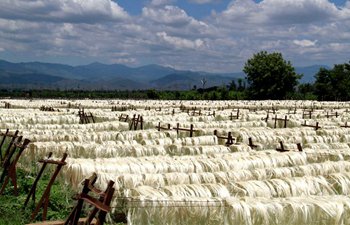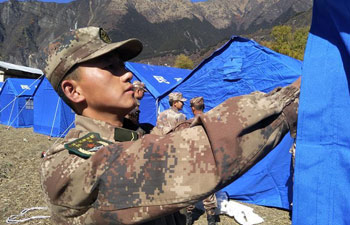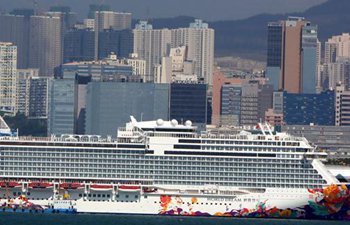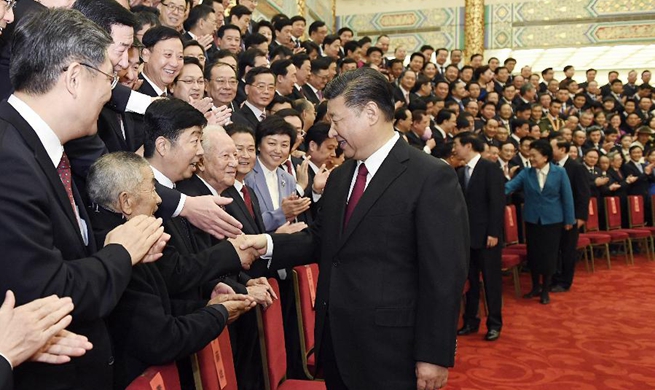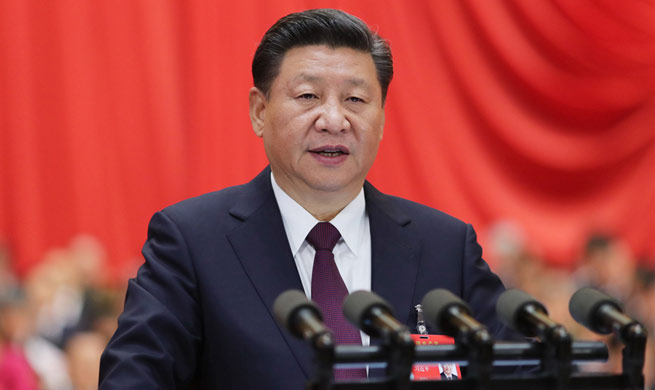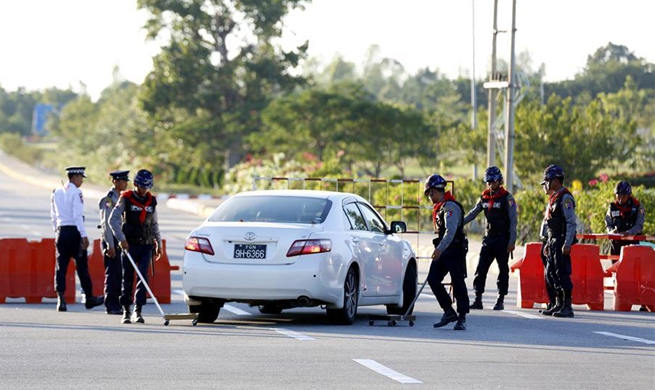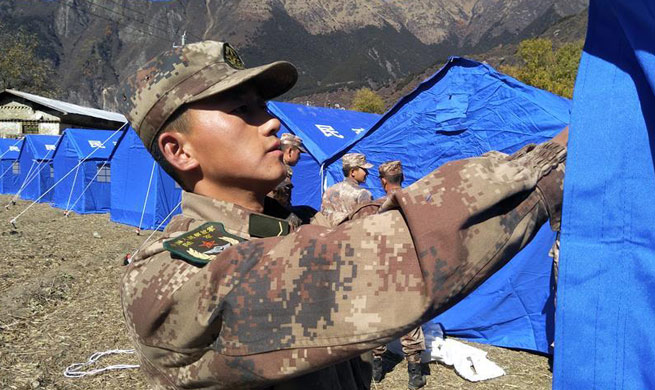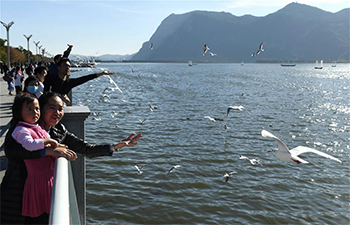KHARTOUM, Nov. 18 (Xinhua) -- The visit of U.S. Deputy Secretary of State John Sullivan to Khartoum and his talks with Sudanese officials have resulted in a beginning of the second phase of the constructive engagement plan to resolve outstanding issues between the two countries.
Lifting Sudan's name from the U.S. list of state sponsors of terrorism, and normalization of ties between Khartoum and Washington constituted the main issues of the second phase of the Sudanese-American dialogue.
For two days, the U.S. official held intensive talks with a number of Sudanese officials on several issues related to peace, religious coexistence and public freedoms.
Closed-door talks were held between Sudanese Foreign Minister Ibrahim Ghandour and Sullivan at the outset of the visit where the two sides agreed on a new track-plan for negotiation.
According to a statement by the Sudanese Foreign Ministry earlier, the new tracks include lifting Sudan's name from the list of countries sponsoring terrorism, exempting Sudan's debt, ensuring Sudan's joining of the World Trade Organization (WTO), and the economic cooperation between the two countries.
According to the statement, Ghandour reiterated Sudan's commitment to the constructive engagement plan between the two countries.
"We appreciate the progress we have made through the dialogue process of the five-track plan that led to the full lifting of economic sanctions on Sudan," he said.
He praised the U.S. for fulfilling its commitments to the constructive engagement in the past period.
In the meantime, and regarding the peace issues in Sudan, the U.S. official's talks in Khartoum focused on reviving the peace process between the Sudanese government and the rebel groups in Darfur, South Kordofan and Blue Nile regions.
To this end, in a lecture he presented at the University of the Holy Quran in Khartoum on Friday, Sullivan demanded the Sudanese government and rebel groups to permanently cease all hostilities in South Kordofan, Blue Nile and Darfur.
The U.S. diplomat further stressed the importance for the two sides to continue talks within a comprehensive political process as there is no other way to achieving peace, noting that stability would bring back the country to the right path.
He also urged the rebels of Sudan People's Liberation Movement (SPLM)/northern sector to accept the U.S. proposal to deliver relief in the two areas (Blue Nile and South Kordofan).
In November last year, the Washington offered an initiative in accordance with which the United States Agency for International Development (USAID) would transport medical and humanitarian assistance by air to the affected areas in South Kordofan and Blue Nile areas after undergoing internal inspection by the government of Sudan.
Earlier the Sudanese government declared its agreement on the U.S. initiative, but the SPLM/northern sector rejected it.
During the peace talks between the two sides in Addis Ababa, Ethiopia, in August 2016, the SPLM/northern sector demanded transportation of 20 percent of the humanitarian assistance through Ethiopia's Asosa port, a demand rejected by Khartoum.
The Sudanese government has been fighting the SPLM rebels in South Kordofan and Blue Nile since 2011. It has also been fighting the armed rebel groups in Darfur region since 2003.
Meanwhile, during his lecture at the University of the Holy Quran in Khartoum, Sullivan also expressed his country's concern over the status of religious freedom in Sudan.
The U.S. official vowed his country's support for efforts of enhancing peaceful co-existence, guaranteeing religious freedom and respecting human rights in Sudan, noting that "these issues are important in the engagement with Sudan in the coming period to counter terrorism and extremism."
After permanently lifting the economic sanctions on Sudan last July, the U.S. administration set the religious freedom file as one of the conditions for full normalization of ties with Sudan.
Last Oct. 6, the United States decided to lift its economic sanctions on Sudan permanently, citing Sudan's "sustained positive actions to maintain a cessation of hostilities in conflict areas in Sudan, improve humanitarian access throughout Sudan, and maintain cooperation with the United States on addressing regional conflicts and the threat of terrorism."
The U.S. State Department announced that the decision would go into effect since Oct. 12 this year.
The U.S. has been imposing sanctions on Sudan since 1997 and listing it one of the countries sponsoring terrorism.




